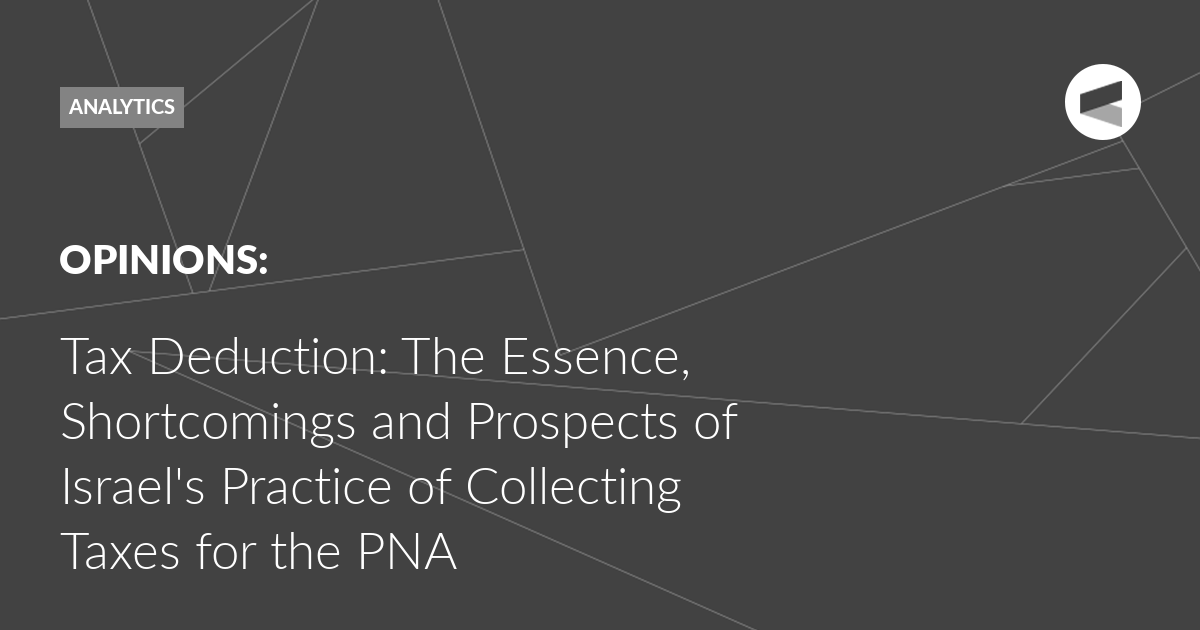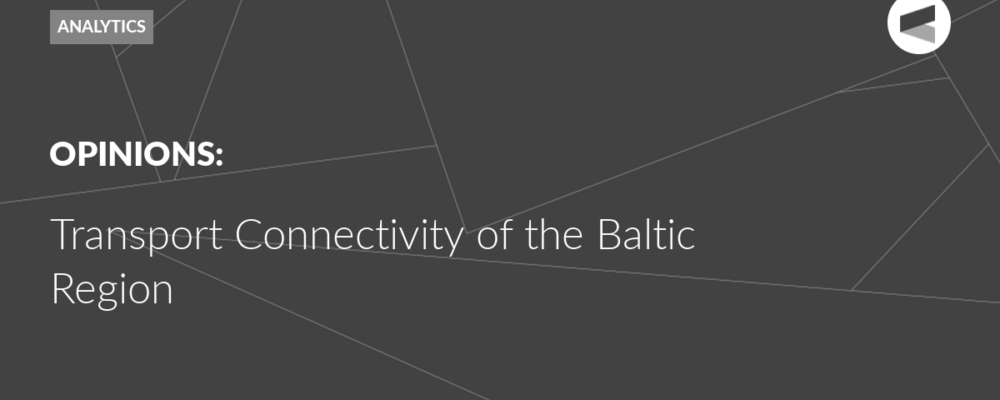There are various theories explaining the motivation of both the past and current leadership of Israel to follow the path of economic rapprochement with the enemy in the regional conflict. According to the political interpretation, the desire to slow down the emergence of a Palestinian state is to blame. Following this logic, the Israeli authorities continued to refrain from changing the established practice, for fear of creating the illusion of a readiness to make territorial concessions. The economic justification looks more pragmatic and boils down to the desire to protect themselves from illegal imports and competition with the PNA in the event of its independent introduction of reduced duties.
Similar to the Oslo I and Oslo II agreements, the Paris Protocol was considered a temporary measure, preparing the ground for documents marking the end of the conflict, and therefore a change in economic relations between its participants in favour of greater independence for each of them. However, the subsequent dynamics of events led to the opposite result. It is curious that if there were certain concerns on the Palestinian side at the initial stage, they were expressed mainly in the risks of Israel introducing unfavourable tariffs, while the likelihood of a full or partial freeze of tax funds for Ramallah was not seriously considered. The first such case occurred in 1997; according to the plan of the sitting legislature, headed for the first time in his career by Benjamin Netanyahu, it was aimed at encouraging the PNA to fight terrorism from within against the backdrop of a surge in violence.
It was separately emphasized that the move followed the example of American sanctions against Iraq, Iran and Libya. However, in this case, it was more a question of Israel borrowing the practice of economic influence as such from its key ally, rather than copying it completely. In 2000, with the beginning of the second intifada, the government again froze the transfer of tax funds to the PNA; payments were restored only at the end of 2002. Later, similar measures were applied at various stages, becoming a response not only to the escalation of Palestinian violence, but also to unilateral political steps by Ramallah, such as applying for full membership in the UN and the International Criminal Court. The Israeli authorities also began to extract from the funds intended for the PNA amounts equal to the budgets of the Palestinian Authority’s Martyrs’ Fund, which pays benefits to Palestinian prisoners in Israeli jails and to the relatives of those guilty of terrorist attacks.
The approach to the Gaza Strip in this context remained rather ambiguous. Thus, in March 2006 – July 2007, in connection with Hamas’ victory in the elections to the Palestinian Legislative Council, Israel completely blocked transfers, and in the fall of 2007, it moved to an economic blockade of the enclave, which eventually fell under the control of this group. In 2018, when Ramallah itself threatened to sanction Gaza until it returned to PNA control, Benjamin Netanyahu’s government threatened to transfer part of the fees directly to the Strip, seeking to contain the escalation due to the deteriorating socio-economic situation. In 2023, after Hamas’ attack on the southern regions of Israel, it was announced that transfers to the PNA would be cut by an amount equivalent to the volumes owed to Gaza. At the current stage, the mechanisms of relations laid out in the Paris Protocol have largely exhausted themselves.
This is connected, first, with their influence on the Palestinian economy, where the main danger is growing external dependence, and not only on Israel. If, according to the results of the first two years of the Paris Protocol, tax revenues were estimated at an average of 60-61% of the Palestinian budget, starting in 2010 this figure approached 70%. This trend, combined with the constant risks of freezing funds for an indefinite period, has increased the importance of international donors. Moreover, the latter themselves have often stimulated this, offering Ramallah emergency financial support for the duration of Israeli restrictions. However, such funds are spent on covering urgent needs, but are not invested in long-term projects in the infrastructure or production sector, which does not contribute to the economic independence of the PNA.
Second, the economic advantages for Israel also look dubious. The country receives a commission for processing transactions in the amount of 3% of the transfer amount and 25% of the income tax of Palestinians working on its territory, which in general does not represent very significant amounts. In addition, over the years of the Paris Protocol, many loopholes for the illegal sale of goods intended for the Palestinian Authority on the Israeli market have been identified. As a result, in 2012, the parties even agreed to tighten the control procedure in order to combat smuggling and tax evasion.
The latter measure turned out to be rather technical, although the Israeli leadership has taken more noticeable steps to change the established practice. The most recent attempt to date was made at the beginning of this year, when the Netanyahu cabinet approved the transfer of funds under the control of a third party, which was Norway, but soon changed its mind under the influence of the Oslo policy on the Middle East track, considering it excessively pro-Palestinian.
The most promising initiative may be considered the 2005 one, which recommended excluding Gaza from the “customs envelope” as part of the implementation of the unilateral disengagement plan with Gaza. It is noteworthy that the said measure was then supported by prominent members of the current government, often considered now as opponents of Palestinian sovereignty, namely Benjamin Netanyahu, who headed the Ministry of Finance at the time, and the current head of the Ministry of Foreign Affairs, Israel Katz, who was the Minister of Agriculture. However, the proposal did not receive widespread support.
In general, for political and economic reasons, both the format of Israel’s economic relations with the PNA and the specific tax collection system need to be transformed, which, at least in some of the Palestinian territories, is entirely possible to implement during the post-war reconstruction of the Gaza Strip, taking into account previously developed proposals. However, the reverse process, consisting of extending the so-called “envelope” to the security sphere, is not off the table: this was mentioned at the end of last year by Benjamin Netanyahu’s entourage.
The Valdai Discussion Club was established in 2004. It is named after Lake Valdai, which is located close to Veliky Novgorod, where the Club’s first meeting took place.
Please visit the firm link to site






